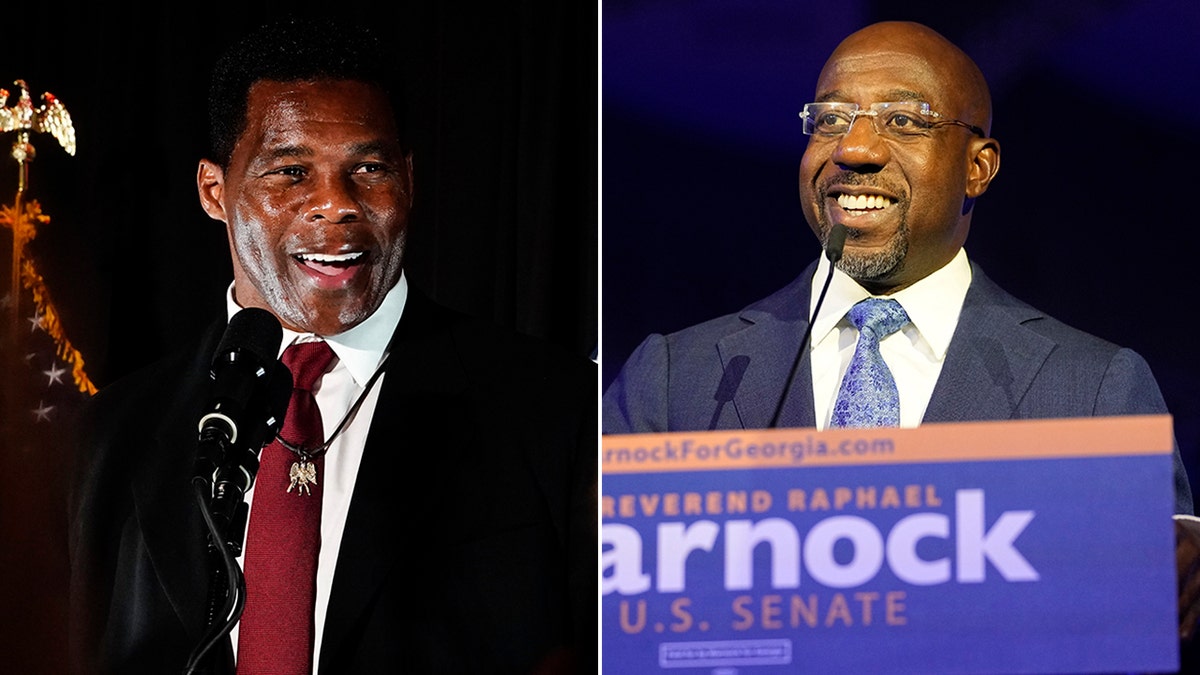600,000 ballots still uncounted in Arizona
Fox News' Alicia Acuna and Jonathan Hunt provide updates on key races in Arizona and Nevada that remain too close to call.
There are still four Senate races yet to be called following Tuesday's midterm elections, including in Arizona, Nevada, Alaska and Georgia. But the timeframe in which we could find out the results varies by each state.
Arizona and Nevada are continuing to count mail-in ballots, while Alaska will likely remain in Republican hands as votes move through the state's ranked-choice voting system. The race for Georgia's Senate seat, however, will be headed to a runoff election in December.
Per Arizona election law, mail-in ballots had to be received by county election officials by 7:00 p.m. local time on election night. However, each of the ballots must go through a signature-verification process before actually being counted. This is the largest factor contributing to the state's delay in election results, amplified by Maricopa County being one of the nation's largest voting jurisdictions with hundreds of thousands of mail-in ballots returned.
It could take days for all ballots in the state to be processed and counted, meaning that a close race between Republican Blake Masters and incumbent Democratic Sen. Mark Kelly might not be called until the last batch is processed.
GET THE LATEST UPDATES ON THE MIDTERM AT THE FOX NEWS ELECTION CENTER

Incumbent Sen. Mark Kelly, D-Ariz., left, and Republican challenger Blake Masters (AP Photo/Ross D. Franklin)
In Nevada, mail-in ballots must be postmarked by Election Day but can arrive as late as Saturday to be counted. Election officials have been flooded with thousands of them since Tuesday as the margins between incumbent Democratic Sen. Catherine Cortez Masto and Republican Adam Laxalt remain tight.
Officials in Clark County, Nevada's most populous county, have said that Tuesday, Nov. 15, is the deadline to verify the mail-in ballots, while Nov. 17 is the latest date they will release the final results.
TUCKER CARLSON: WHY DID REPUBLICANS UNDERPERFORM IN THE MIDTERMS?
In Alaska, incumbent Republican Sen. Lisa Murkowski and Republican Kelly Tshibaka are the two front-runners in the race, with each securing large-enough margins that it's unlikely any other candidate would top either as votes are reallocated in the second round of the state's ranked-choice voting system. The only question is which Republican will come out on top.
The winner of the race will likely be determined during the second vote tabulation, which is scheduled for Nov. 23.

Sen. Catherine Cortez Masto, D-Nev., and Republican challenger Adam Laxalt (Associated Press)
In Georgia, since no candidate reached the required 50% of the vote threshold, the top two candidates — Republican Herschel Walker and incumbent Democratic Sen. Raphael Warnock — will head to a runoff scheduled for Dec. 6.
WHAT IS A RUNOFF? EVERYTHING YOU NEED TO KNOW ABOUT THE GEORGIA SENATE CANDIDATES
Early voting will begin across the state after Thanksgiving, but the exact start date depends on the county. All counties must begin early voting by Nov. 28.
Democrats and Republicans currently split the 100-seat Senate at 50 seats each, with Vice President Kamala Harris' tie-breaking vote giving her party the narrowest possible majority.
TRUMP BLASTED ACROSS MEDIA SPECTRUM OVER REPUBLICANS' MIDTERMS PERFORMANCE: ‘BIGGEST LOSER TONIGHT’

Republican Herschel Walker, left, and incumbent Sen. Raphael Warnock, D-Ga. (AP Photo/Brynn Anderson | AP Photo/John Bazemore)
CLICK HERE TO GET THE FOX NEWS APP
Since Alaska is all but guaranteed to stay red, Republicans will have to pick up at least two of the three still-outstanding races to reach a majority and take control of the Senate.






